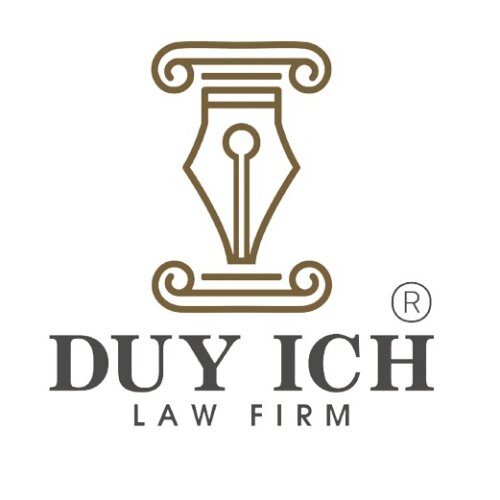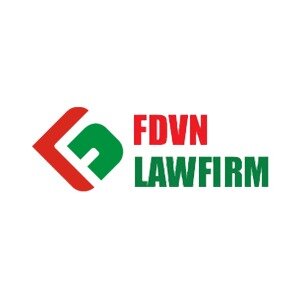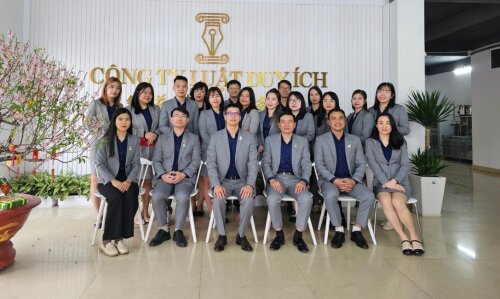Best Civil & Human Rights Lawyers in Da Nang
Share your needs with us, get contacted by law firms.
Free. Takes 2 min.
List of the best lawyers in Da Nang, Vietnam
About Civil & Human Rights Law in Da Nang, Vietnam
Civil and Human Rights Law in Vietnam, including Da Nang, is governed by the constitution as well as various national laws and international agreements to which Vietnam is a party. The constitution guarantees the basic human rights of all citizens including freedom of speech, freedom of the press, right to assembly, and religious freedom, among others. However, in practice, these rights may be restricted by other laws and regulations. It's important to note that, while Vietnam has made some progress in human rights issues, the country still faces criticism from various international human rights organizations.
Why You May Need a Lawyer
Legal counsel in the field of Civil and Human Rights Law can be crucial in various circumstances. If you believe your rights have been violated, such as being subject to discrimination, unlawful detention, or if you’re a victim of police misconduct, a lawyer can help. Additionally, if you’re an activist, a journalist, or a member of a non-governmental organization facing legal challenges, a lawyer experienced in this field can provide you with legal protection and representation.
Local Laws Overview
In Da Nang, as in all of Vietnam, citizens are governed by the national laws pertaining to Civil and Human Rights. These include the Law on Belief and Religion, which governs religious practices; the Labor Code, which addresses discrimination in the workplace; and the Criminal Code, which contains provisions against hate crimes and other rights violations. Despite these laws, enforcement and legal protections may be inconsistent and navigating the legal system can be challenging, often requiring professional legal assistance.
Frequently Asked Questions
1. What are my basic human rights in Vietnam?
In Vietnam, the constitution recognizes basic human rights such as freedom of expression, freedom of the press, freedom of assembly, religious freedom, and the right to privacy, among others.
2. Can the government restrict my rights in Vietnam?
While rights are constitutionally guaranteed, the government has the authority to pass laws that may restrict these rights in certain cases, often citing national security or social order concerns.
3. What should I do if I believe my rights have been violated?
If you believe your rights have been violated, you should contact a lawyer who specializes in Civil and Human Rights to understand your options and potential for legal recourse.
4. Are there particular laws protecting women and children in Vietnam?
Yes, there are laws aimed at protecting the rights of women and children, including laws against domestic violence and child labor. The Law on Gender Equality is one such framework designed to combat discrimination and promote equality.
5. Is there freedom of religion in Vietnam?
While the Law on Belief and Religion states that all individuals have the right to freedom of religion, this right can be subject to limitations set by law, and certain religious practices may face governmental scrutiny or restrictions.
6. What legal protections are there against discrimination in the workplace?
The Labor Code of Vietnam prohibits discrimination based on race, gender, social class, marital status, faith, and religion, and includes measures to enforce this non-discrimination.
7. How can I report a human rights abuse?
You can report human rights abuses to local authorities, human rights organizations, or seek the assistance of a lawyer who can advise you on the appropriate channels for your complaint.
8. Can journalists freely report in Vietnam?
Although there is freedom of the press in principle, in practice journalists may face restrictions and risks when reporting on sensitive topics. Laws relating to national security can be invoked to limit press freedom.
9. Are peaceful protests allowed in Da Nang, Vietnam?
Peaceful protests are permitted but are regulated by law. In certain circumstances, protests can be dispersed if deemed a threat to national security or public order.
10. How can an NGO operate within the realm of Civil & Human Rights in Vietnam?
NGOs need to be registered and may face scrutiny. They must navigate complex laws regarding civil society and should often seek legal advice to ensure compliance with national legislation.
Additional Resources
For those seeking legal advice in Civil & Human Rights, it can be beneficial to reach out to the Vietnam Lawyers Association or international human rights organizations that operate within Vietnam. Local non-governmental organizations that focus on human rights can also provide support and information.
Next Steps
If you need legal assistance in Civil & Human Rights, the first step is to consult with a local lawyer who has expertise in this area. Lawyers can guide you through the legal process, represent you in dealings with the authorities, and help to defend your rights in court if necessary. Documenting any violations meticulously and seeking support from human rights organizations can also be an important component of your legal strategy.
Lawzana helps you find the best lawyers and law firms in Da Nang through a curated and pre-screened list of qualified legal professionals. Our platform offers rankings and detailed profiles of attorneys and law firms, allowing you to compare based on practice areas, including Civil & Human Rights, experience, and client feedback.
Each profile includes a description of the firm's areas of practice, client reviews, team members and partners, year of establishment, spoken languages, office locations, contact information, social media presence, and any published articles or resources. Most firms on our platform speak English and are experienced in both local and international legal matters.
Get a quote from top-rated law firms in Da Nang, Vietnam — quickly, securely, and without unnecessary hassle.
Disclaimer:
The information provided on this page is for general informational purposes only and does not constitute legal advice. While we strive to ensure the accuracy and relevance of the content, legal information may change over time, and interpretations of the law can vary. You should always consult with a qualified legal professional for advice specific to your situation.
We disclaim all liability for actions taken or not taken based on the content of this page. If you believe any information is incorrect or outdated, please contact us, and we will review and update it where appropriate.
Browse civil & human rights law firms by service in Da Nang, Vietnam
Da Nang, Vietnam Attorneys in related practice areas.











